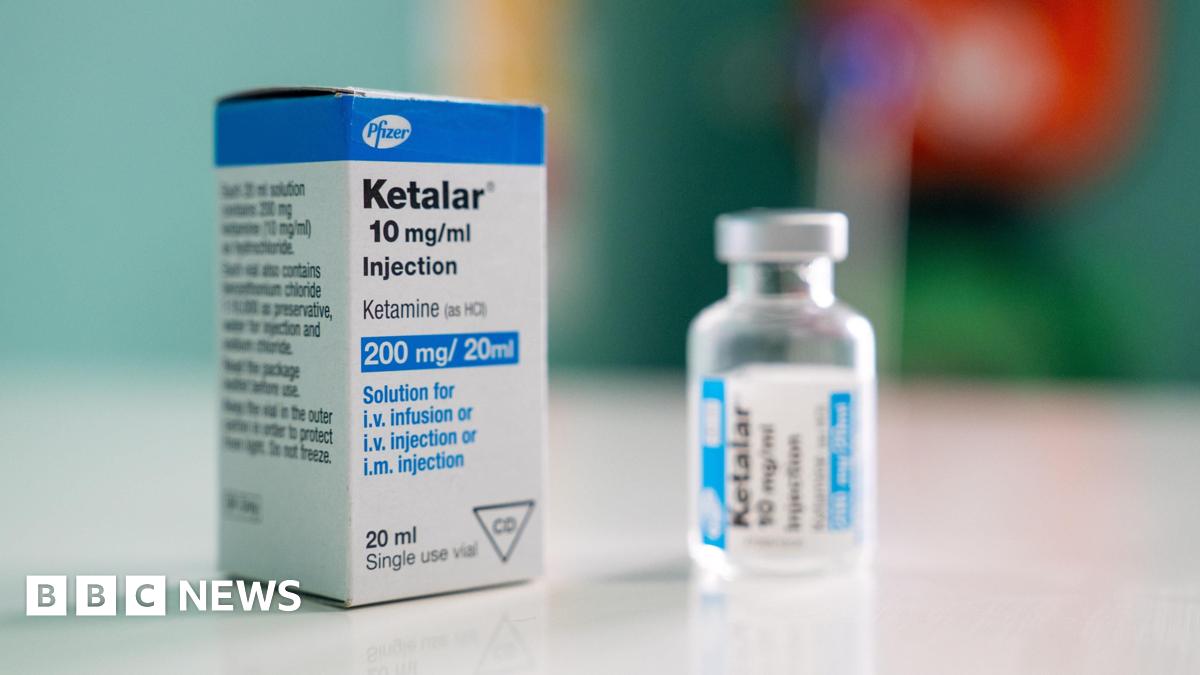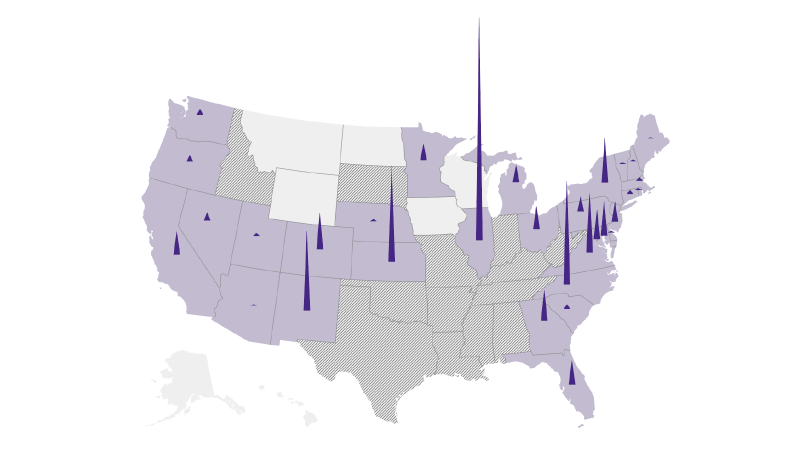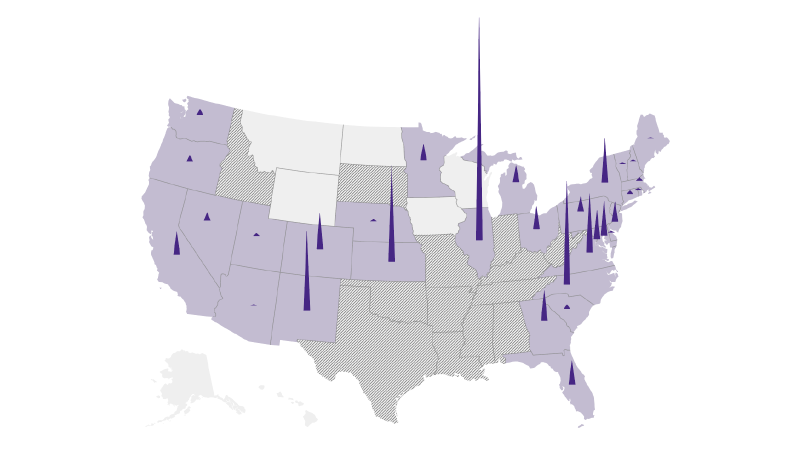Could Ketamine Clinics Transform NHS Depression Care?

Welcome to your ultimate source for breaking news, trending updates, and in-depth stories from around the world. Whether it's politics, technology, entertainment, sports, or lifestyle, we bring you real-time updates that keep you informed and ahead of the curve.
Our team works tirelessly to ensure you never miss a moment. From the latest developments in global events to the most talked-about topics on social media, our news platform is designed to deliver accurate and timely information, all in one place.
Stay in the know and join thousands of readers who trust us for reliable, up-to-date content. Explore our expertly curated articles and dive deeper into the stories that matter to you. Visit Best Website now and be part of the conversation. Don't miss out on the headlines that shape our world!
Table of Contents
Could Ketamine Clinics Transform NHS Depression Care? A Promising but Complex Outlook
The NHS faces a monumental challenge: effectively treating the millions grappling with depression. Traditional antidepressants, while helpful for some, fall short for many, leaving a significant portion of patients struggling to find relief. Could the answer lie in ketamine clinics? The emergence of ketamine-assisted therapy is sparking intense debate and offering a glimmer of hope for revolutionizing NHS depression care. But is it a realistic solution, or just another promising avenue fraught with complexities?
Ketamine: Beyond Anaesthesia
For years, ketamine has been known primarily as an anesthetic. However, research over the past two decades has unveiled its potential as a rapid-acting antidepressant, particularly in cases of treatment-resistant depression (TRD). Unlike traditional antidepressants that work on serotonin and norepinephrine, ketamine targets glutamate receptors in the brain, offering a novel mechanism of action. This difference can be crucial for patients who haven't responded to other therapies.
How Ketamine-Assisted Therapy Works
Ketamine-assisted therapy isn't simply about administering ketamine. It's a carefully managed process involving:
- Initial Assessment: A thorough evaluation to determine suitability and rule out contraindications.
- Low-Dose Infusion: Ketamine is administered intravenously under medical supervision in a controlled environment.
- Therapeutic Support: A trained therapist provides guidance and support throughout the process, helping patients process emotions and integrate the experience.
- Follow-up Sessions: Ongoing therapy sessions are crucial for solidifying the benefits and maintaining progress.
The Potential Benefits for the NHS
If proven effective and cost-effective on a larger scale, ketamine clinics could offer several significant advantages to the NHS:
- Reduced Hospitalizations: Faster relief from severe depression could decrease the need for lengthy hospital stays.
- Improved Quality of Life: For those with TRD, ketamine offers a potential pathway to improved functionality and overall well-being.
- Decreased Burden on GPs: Successful treatment could lessen the strain on general practitioners currently grappling with high demand for mental health services.
The Challenges and Concerns
Despite the potential, several hurdles remain before widespread ketamine clinic implementation within the NHS:
- Cost: The cost of ketamine treatment, including the necessary medical supervision and therapy, is a significant concern.
- Safety and Side Effects: Ketamine can cause side effects, ranging from mild nausea to more serious complications, requiring careful monitoring.
- Accessibility: Ensuring equitable access to ketamine clinics across different regions and socioeconomic groups would be a major logistical challenge.
- Long-Term Effects: More research is needed to fully understand the long-term effects and potential risks of repeated ketamine treatment.
- Regulatory Hurdles: Navigating the regulatory landscape and securing approvals for widespread use within the NHS will be a complex undertaking.
The Road Ahead: Research and Regulation
The future of ketamine clinics within the NHS is contingent upon ongoing research. Large-scale clinical trials are essential to solidify the efficacy and safety of ketamine-assisted therapy in diverse patient populations. Furthermore, robust regulatory frameworks are crucial to ensure safe and responsible implementation. The NHS is actively exploring these avenues, with pilot programs and research initiatives underway.
Conclusion:
Ketamine clinics hold significant promise for transforming depression care within the NHS, offering a lifeline for patients with TRD. However, realizing this potential requires careful consideration of the associated challenges. A balanced approach, prioritizing research, addressing safety concerns, and ensuring equitable access, will be key to determining whether ketamine clinics become a transformative force within the NHS mental health system. Further research and careful planning will be critical in determining the long-term role of ketamine in the fight against depression.

Thank you for visiting our website, your trusted source for the latest updates and in-depth coverage on Could Ketamine Clinics Transform NHS Depression Care?. We're committed to keeping you informed with timely and accurate information to meet your curiosity and needs.
If you have any questions, suggestions, or feedback, we'd love to hear from you. Your insights are valuable to us and help us improve to serve you better. Feel free to reach out through our contact page.
Don't forget to bookmark our website and check back regularly for the latest headlines and trending topics. See you next time, and thank you for being part of our growing community!
Featured Posts
-
 Casa Amor On Love Island Usa A Guide To The Villas Second Chance
Jun 24, 2025
Casa Amor On Love Island Usa A Guide To The Villas Second Chance
Jun 24, 2025 -
 How Ariana Madix Helped Love Island Usa Stars Handle Post Show Social Media Fallout
Jun 24, 2025
How Ariana Madix Helped Love Island Usa Stars Handle Post Show Social Media Fallout
Jun 24, 2025 -
 Heartbreak For Fleetwood Bradley Steals Pga Tour Win In Dramatic Finish
Jun 24, 2025
Heartbreak For Fleetwood Bradley Steals Pga Tour Win In Dramatic Finish
Jun 24, 2025 -
 Oil Price Surge Delivers Fresh Economic Shock To America
Jun 24, 2025
Oil Price Surge Delivers Fresh Economic Shock To America
Jun 24, 2025 -
 Israel Retrieves Bodies Of Soldier And Civilians Killed In Gaza
Jun 24, 2025
Israel Retrieves Bodies Of Soldier And Civilians Killed In Gaza
Jun 24, 2025
Latest Posts
-
 2022 Data Reveals Substantial Increase In Abortion Related Interstate Travel
Jun 25, 2025
2022 Data Reveals Substantial Increase In Abortion Related Interstate Travel
Jun 25, 2025 -
 Trumps Presidency Evaluating The Long Term Effects Of His Policies
Jun 25, 2025
Trumps Presidency Evaluating The Long Term Effects Of His Policies
Jun 25, 2025 -
 Record Number Of Women Crossed State Lines For Abortion Care In 2022
Jun 25, 2025
Record Number Of Women Crossed State Lines For Abortion Care In 2022
Jun 25, 2025 -
 Behind The Scenes Of The Walking Dead Dead City Scott Gimple On Negans Villainy And The Shows Evolution
Jun 25, 2025
Behind The Scenes Of The Walking Dead Dead City Scott Gimple On Negans Villainy And The Shows Evolution
Jun 25, 2025 -
 Did Trump Reveal A Secret Iran Israel Ceasefire Agreement
Jun 25, 2025
Did Trump Reveal A Secret Iran Israel Ceasefire Agreement
Jun 25, 2025
